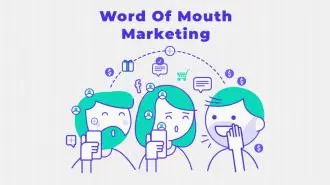Summary / TL;DR
AI for marketing automation enables businesses to streamline tasks, improve targeting, and increase ROI through predictive analytics and machine learning. It helps automate repetitive processes like customer segmentation, campaign orchestration, lead scoring, and product recommendations, allowing marketers to focus on strategic decisions. AI-driven tools personalise content and improve customer retention by predicting behaviour and identifying at-risk users. These systems also reduce errors and speed up decision-making by delivering real-time insights. However, effective implementation depends on quality data, user privacy, bias mitigation, and appropriate model selection. Ethical data use and aligning AI with company values are essential for sustained benefits.
Artificial Intelligence is one of the most promising technologies that everyone’s watching closely. It’s already playing a significant role in automation by taking care of repetitive tasks. Naturally, it’s finding its way into marketing, enhancing optimisation and lead generation strategies.
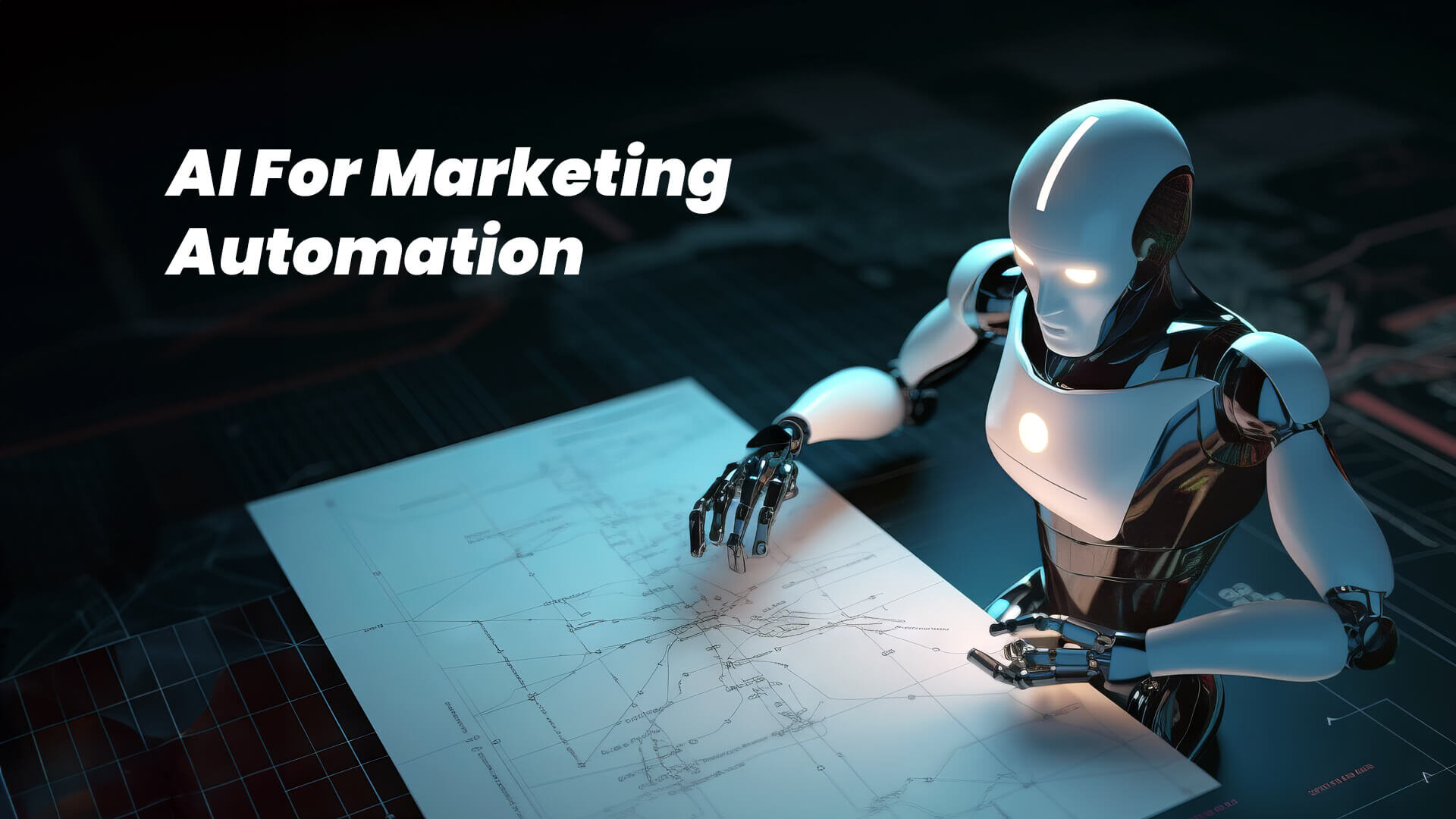
AI tools are becoming increasingly prevalent in marketing, with new applications emerging daily. The real challenge lies in figuring out how to leverage this powerful tool effectively in your strategy.
Let’s glance at the future of marketing automation using AI to learn more about the benefits of AI-powered marketing. Read on to learn how to use this emerging tool to inform marketing strategies to cultivate broader online visibility for your business.
Want to receive updates? Sign up to our newsletter
Each time a new blog is posted, you’ll receive a notification, it’s really that simple.
Marketing Automation With AI Technology
Even in marketing, predictive analytics, as one of the applications of AI, has plenty of benefits. It can optimise and streamline existing marketing processes, including various marketing channels utilising computer vision capabilities and AI-powered marketing automation tools across multiple channels.
When it comes to analytics, campaign creation, and orchestration, AI can seriously enhance your marketing automation. It helps you maximise reach and implement effective strategies.
Talking about analytics, you can use AI to analyse data on customer preferences and find new ways to engage with customers and communicate with your target audience. Public sentiment matters a lot in business, and having this insight through AI can help you spread the desired message to them. After all, the best marketing campaigns are created to increase a particular key performance indicator.

In campaign creation, AI can govern the entire process from the beginning to the end through machine learning algorithms. As a marketer, you can use AI algorithms to find your target audience who would interact with a specific type of communication.
This gives you room to create marketing strategies accordingly, maximising your reach. Additionally, you can use AI to recommend products to customers based on their data.
Lastly, AI can help you organise and manage campaigns effectively. Using Machine Learning models, you can determine which emails to send to specific customers. This not only supports social media management but also improves the overall consumer experience, letting you adjust the number of campaigns as needed.
AI can identify the correct campaign and choose the next best option for them, effectively optimising the marketing automation process.
How AI Revolutionises The Marketing Automation Industry
The market is larger than ever and shows no signs of shrinking anytime soon. As a result, companies and brands are vying for faster growth and greater returns now more than ever. With the use of AI and marketing automation software, they can simplify the entire marketing process and make quicker decisions.
Not only does this focus on automating repetitive marketing tasks, thus reducing tedium for marketers, but it also limits the number of errors made. AI has many benefits, and digital marketers can leverage it to achieve cost efficiency across plenty of use cases.
1. Boost Productivity
Using AI to automate repetitive tasks, human marketers can save time and focus on more critical aspects in the increasingly competitive market. They can work on creating new, enticing campaigns to benefit your brand and let AI handle time-consuming marketing tasks.
By leveraging artificial intelligence AI, automation can help you efficiently tackle marketing tasks such as finding the best leads and targeting the desired audience through AI marketing automation. This is where all you and your marketers must do is quality-check each advertisement and turn automation on or off. You can also set up the automation to turn off when your returns reach a critical level.
An operations team can go through text notes provided by the sales team and customer applications to optimise this process further.
With this marketing technology, you and your marketing team will save time and energy to focus on the marketing efforts that matter more. You can find the best contacts that drive the most returns, which results in their talents being used more efficiently.
Chatbots can significantly enhance customer support by reducing the workload on customer service agents, giving them the capacity to tackle more complex problems. These bots handle straightforward issues like payments and subscriptions, freeing up your team to focus on more challenging tasks.
2. Improved ROI Through Marketing Analysis
One of the most praised benefits of using AI for marketing automation is the improved revenue from AI market analysis. Through audience targeting and channel optimisation, you can find more customers more effectively, creating an efficient way of advertising.
AI can analyse customer data and identify patterns to find matching profiles of your target audience. Moreover, you can track how well each ad performs and when it begins to underperform, allowing you to rotate it out.
Customer behaviour patterns can be identified quickly and cheaply through AI using data collected from customer interactions. And you can predict customer behaviour, and view reports highlighting trends and tendencies. This is often more accurate than older market research methods and can help retain customers.
In the age of heavy digitisation, AI plays a crucial role in marketing communications, helping to increase revenue through effective email marketing and digital strategies, lead generation, and improved customer service.
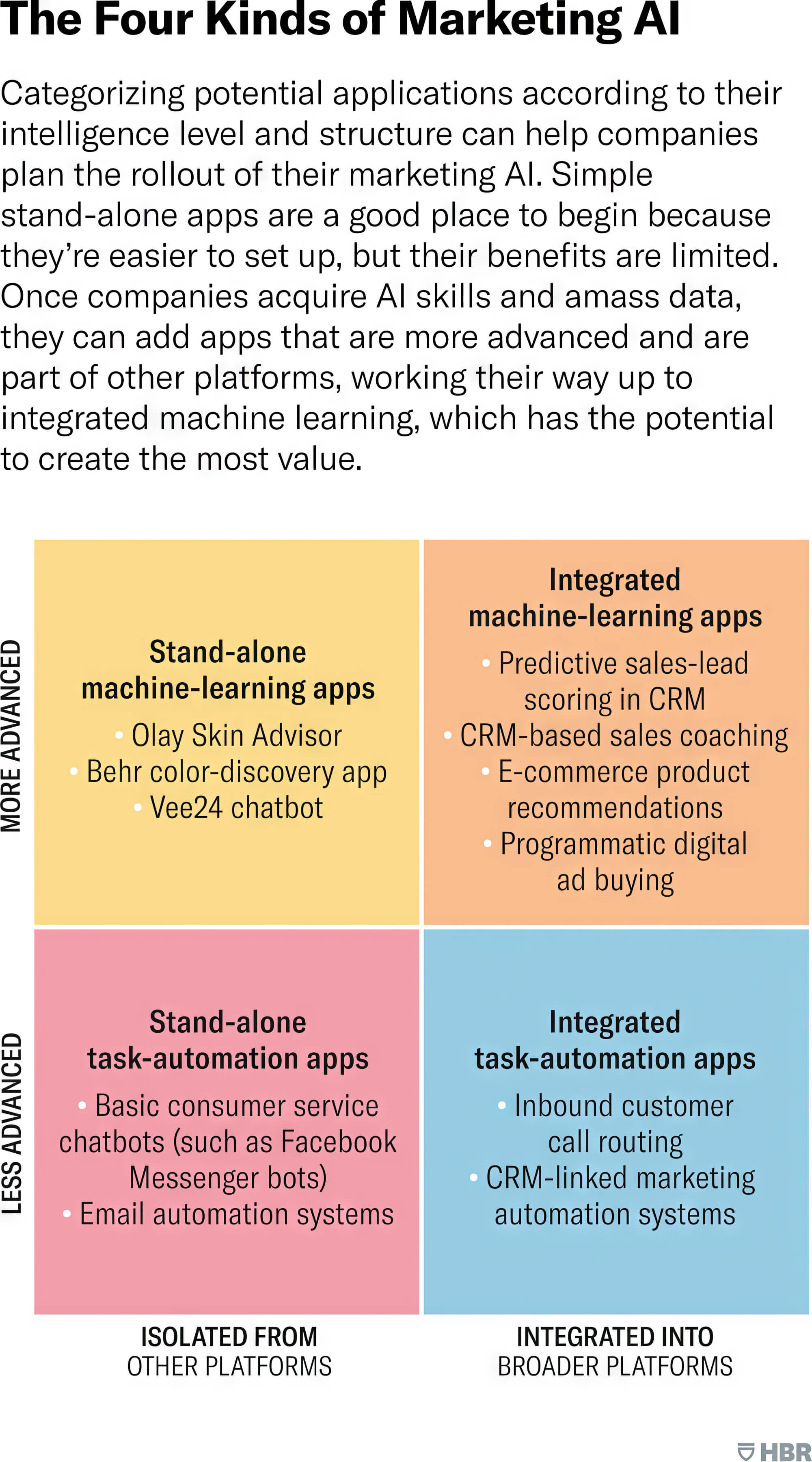
3. AI-Powered Personalisation
AI can personalise messages for your customer base in social media marketing, leading to better customer experience with dynamic pricing strategies and higher conversion rates.
Using AI models, you can achieve the following types of personalisation:
- Product recommendations for specific consumer archetypes
- Creating engaging digital campaigns
- Reducing underperforming channels
- Targeting marketing messages
All of these result in better responses from your target audience while reducing any time and money wasted on unproductive campaigns. AI models allow you to gauge which marketing content your audience will likely engage with.
Data about customer decisions is also a large factor in predicting the kind of content with the highest customer engagement. By utilising natural language processing algorithms, you can analyse the data and accurately predict whether a customer is likely to make a purchase.
Remember: the most essential part of any business strategy is creating content that appeals most to the target demographic. AI models can provide relevant data, allowing you to create a marketing strategy around the customer’s needs.
4. Error Reduction
Once appropriately trained, the chances of AI making errors are significantly less than a human’s. Tasks like manually entering data are often repetitive and subject to errors. But with AI, the process is automated, and mistakes are all but eliminated.
And after all the data has been collected, you can have teams dedicated to analysing it. After all, it’s best for AI marketers to draw inferences rather than solely rely on AI for critical decision-making. AI is a tool and not a substitute for humans.
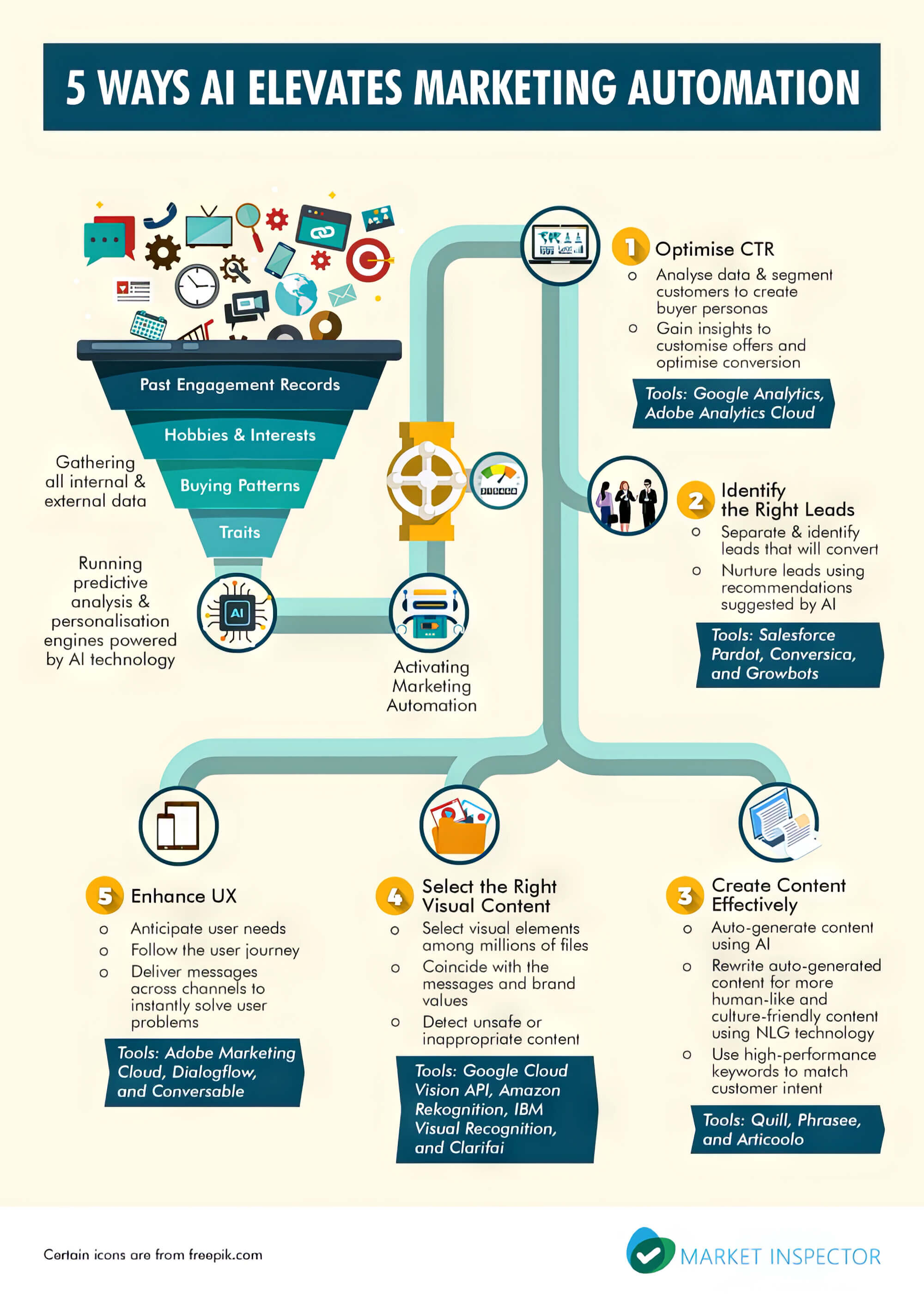
5. Quick Decision-Making
After everything’s been said and done, you’ll notice that automation and algorithms used by AI have made marketing faster. Since all the data is made available to you quickly through AI systems, you can act on it just as quickly. This allows you to maximise the effectiveness of your marketing campaigns while maximising your revenue streams.
The increase in returns from utilising AI in marketing automation AI and marketing automation is nothing to scoff at. Timing is extremely important when reaching out to your target audience, and AI makes it possible to be as fast as possible.
Noteworthy Points About AI In Marketing Strategy
AI holds great potential in the marketing industry, but there are a few points to consider when implementing it as a solution for your marketing needs. One such point is that AI marketing predictions should be aligned with your company’s and society’s values.
Naturally, this brings in a few concerns about the usage of AI that can be troubling for some. So, let’s explore some of these aspects of using Artificial Intelligence for marketing automation and digital marketing.
1. AI Training Through Data
Something obvious to most is that the kind of data used to train Artificial Intelligence matters. If your marketing team has accrued enough specific and high-quality data, you can use it to build an AI automation model. Tasks like data analysis for classifying support tickets by analysing customer data and categorising them as urgent or non-urgent can be performed based on this data.
Another point to remember is that the more data you have to train an AI model with, the better its performance will be. Of course, this also depends on the complexity of the data, as more straightforward tasks require fewer records for training. The number of records needed for the AI model to perform complex tasks will also be higher.
Depending on your ML platform, you may have access to features that provide multiple data points to combine yours with. And by combining it with third-party data, you can further enhance the effectiveness of your AI model.
2. Privacy Matters
Maintaining a healthy degree of user privacy is vital to any company’s success. Using collected data for analysis and operation to improve your products, services, and operations is fine as long as you have the user’s consent. You must take a few additional steps to keep your relationship with the customer base healthy.
Transparency over data usage is critical for this. The individual customer reserves the right to control how their data is used, so their data shouldn’t be sent to a third party. Without consent, exchanging data becomes unethical- something undesirable for any brand’s reputation.
This is particularly the case for personally identifiable data, which shouldn’t be used without the user’s express permission.
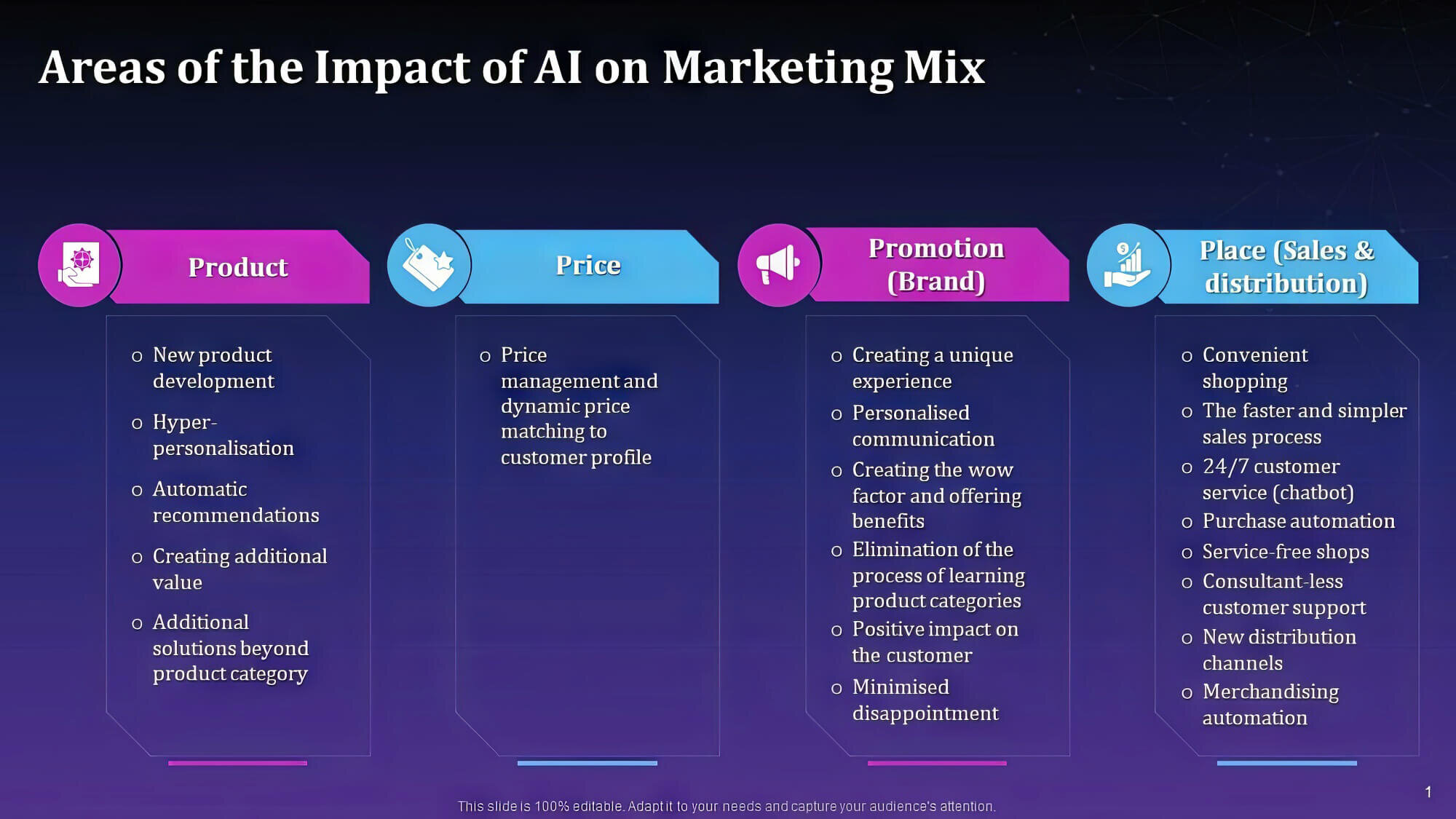
3. Technical Aspects
AI is technical by its very nature, and as a company marketer, you need to consider which models are worth investing in. To judge whether it is worth it, consider looking at the analysing and marketing processes of the prospective AI model.
There are plenty of AI models to choose from on the market, the two most common being classification and time series forecasting.
The former classifies social media posts or sales with a positive or negative title, along with a prediction of a similar event in the future. Based on this prediction, you can gauge the potential impact on search engine rankings or social media engagement.
As for time series forecasting, the AI model offers real-time predictions presented on a scale. The revenue from an account or the following best action for a marketing milestone represents values on the said scale.
The AI model can convert text into data based on natural language processing, providing actionable insights. Depending on the scale of operation, you may find the pertinent information at an individual or an enterprise level.
The main point to consider here is how you implement these models into your company. Based on the scale of operation, the specific goal and retraining frequency, you will be met with many decisions. The correct decision largely depends on what the company needs from the AI model and the data accumulated for it up until that point.
4. Biases
Some forms of data may be inherently biased, particularly when using historical data. AI models work on patterns, and the responsibility of directing them to the right track befalls upon humans.
When training an AI model, you must look for potential biases and eliminate them as effectively as possible. For instance, if the AI model has a bias for or against a particular group, gender, ethnicity or sexual identity, the bias must be removed. Based on your ML platform, you can view whether or not these biases are present in the data.
And lastly, the tools needed for these models will eventually improve as these biases are eliminated. But until then, you will need to prioritise removing these biases as much as possible.
FAQ
1. How does AI help in marketing automation?
Digital marketing is at the new forefront of advertising and market campaigning, and it’s only natural that companies would look to AI for optimising these processes. You can use AI marketing tools and automation to optimise sales funnels, predict sales, score leads, and accurately predict customer churn.
A. Sales Forecasts
You can use Artificial Intelligence to successfully predict a particular customer’s purchase, allowing you to plan around it to the highest degree. The result is a data-driven business that can sell products effectively while focusing on an even more productive future.
Making sales forecasts is significantly simplified through AI, so even someone inexperienced in tech can understand them. Budgeting, improving campaign performance and planning are all streamlined as a result.
B. SFO
Businesses use a marketing structure called a sales funnel to gain leads and convert them into sales. These funnels are essential to customising a user’s experience based on customer data like purchase history. By using AI, many businesses strive to personalise the customer journey through sales funnels.
SFO, a.k.a Sales Funnel Optimisation, is the process by which the consumer is introduced to sticking points in the funnel. This leads to the customer finding more deals and products to purchase, leading to better sales for the company.
AI-driven SFO is a massive advantage that many companies use in their digital marketing campaigns. The effectiveness of AI-driven SFO is higher than that of older and inefficient manual methods.
C. Predict Churn
Churnmeasures how many of your customers stop using or renewing your product. Naturally, it’s an undesirable turn of events for any business, and you would want to minimise churn. After all, too much churn can have a negative impact on both the sales and reputation of a company. And at that point, generating more leads would be less fruitful.
With AI-powered marketing automation solutions, you can determine which of your target audiences will likely churn. With this knowledge, you can assign marketing teams to attend to these customers and find AI marketing solutions to retain them. The more consumers are retained, the better it will be for your business.
Additionally, the marketing analytics you gain from this data can help you identify and act on the causes of churn. Solving these issues will help with customer retention and lead generation through word-of-mouth.
D. Evaluation And Lead Scoring
AI-enabled lead scoring can help businesses identify the best sources of leads who are highly likely to purchase their products. Marketing professionals can focus on an audience more likely to become potential customers, increasing the effectiveness of their campaigns.
Thus allowing marketers to adjust the marketing funnel quickly before the reviews occur. You’ll be a step ahead in improving your small business, benefitting the company.




